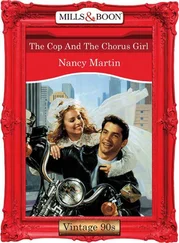Usually, he was the one saying that something was odd and I was the one questioning it. The frustrating thing was that I couldn’t even say exactly what was odd about this, except that thinking about it gave me a tickle in my chest.
“They’re both dead,” I said. “Wurzel disappeared under mysterious circumstances and Peschel was murdered.”
“Ten years apart,” Monk said. “There’s nothing odd about that.”
“Both of their last names end with the letters ‘e-l,’” I said.
Monk gave me a look.
“Okay, that was stupid. But if there’s nothing odd, why did you cock your head when I told you at the bookstore that Wurzel died ten years ago?”
“What are you talking about?”
“You cocked your head, like a chicken,” I said, demonstrating by cocking my own. “You do that whenever you hear something that doesn’t fit or that makes something fit that didn’t fit before.”
“You mentioned death, and whenever I hear about a death in the context of a murder investigation, my interest is piqued.”
“There you go,” I said. “You admit it: You’re piqued.”
“The pique passed,” Monk said. “My head is swimming with murders and deaths over the last few days. I am having trouble keeping them all straight.”
“I’m telling you, Mr. Monk, there’s something ticklish about this.”
“Ticklish?”
“I feel a tickle, right in the middle of my chest.”
“Maybe you are having a heart attack,” Monk said.
“I am not having a heart attack.”
“Do you feel any shooting pains in your left arm?”
“No, but I’m beginning to feel one in my head,” I said.
“We should stop by a hospital.”
“I’m fine.”
“You have heart palpitations and a throbbing headache,” Monk said. “That’s not fine. It’s fatal.”
“Something’s bugging me, that’s all,” I said.
“Heart palpitations and a throbbing headache. It could be the onset of a massive stroke.”
“I think it’s my subconscious,” I said. Perhaps after all the years of working for Monk, and all the murders that he’d solved with me tagging along, I was finally developing some detective instincts of my own.
But what good would they do me if I had no idea what my instincts were trying to tell me?
“We should stop and see Dr. Bell,” Monk said. “He can help you with that. Maybe he can help me, too, as long as we’re there.”
“I have a better idea,” I said.
“What could be better than seeing Dr. Bell? It’s on the way. You’ll thank me later.”
I flipped open my cell phone and, breaking the law requiring motorists to use hands-free units while driving, I called Danielle. I asked her to give us a rundown on Dalberg Enterprises and to find out where we could bump into Linda Wurzel.
“Why would we want to meet her?” Monk asked after I finished the call.
“I don’t,” I said. “You do.”
While Lansdale and the forensics unit searched Captain Stottlemeyer’s apartment, Lieutenant Randy Disher sat at his desk, racked with guilt.
He knew he was doing what he had to do, but he couldn’t help feeling that he was betraying his commanding officer, his mentor, and his friend.
Disher tried to distract himself from his despicable behavior by going through the statements taken from the hotel guests who were on Braddock’s floor the night of the murder.
A detective from Wichita stayed in the room next to Braddock’s. He said that someone knocked on Braddock’s door around ten p.m. and, shortly thereafter, he heard a thump and the sound of a glass breaking, but nothing that alarmed him or made him think there was trouble.
The detective’s statement would go a long way towards convincing a jury that Braddock was killed in his seventh-floor hotel room between ten and ten thirty p.m., which, unfortunately, was the same time that Captain Stottlemeyer said that he was sitting by himself in a conference room on the second floor.
Supposedly.
Disher scolded himself for thinking that way, for yet another betrayal of his friend, in thought if not in deed.
But Disher had no choice. He had to follow the evidence where it led him. And as the captain said, this case could make or break his career. He couldn’t afford any mistakes.
Disher had called the deputy chief, half hoping that his boss would countermand his decision to search the captain’s apartment. But, to Disher’s dismay, the deputy chief agreed with Disher’s actions and congratulated him on not letting his loyalty cloud his judgment.
It didn’t make Disher feel any better.
His last hope was that Lansdale ’s search would come up empty. But that hope was dashed the moment Lansdale walked in and Disher saw the evidence bag in his hand.
Stottlemeyer’s tie was in it.
Disher bolted from his seat and quickly led Lansdale back into the corridor.
“What are you thinking, waving the evidence bag around the squad room?” Disher said. “Do you want everyone to know what we’re doing?”
“They will pretty soon anyway,” Lansdale said. “We found the tie buried in the captain’s trash can outside. Forensics says the tie is a positive match with the fiber recovered from Braddock and that there’s blood on it.”
Disher snatched the bag from Lansdale and looked at the tie inside.
There was no denying it. It matched the description of the tie that Braddock was strangled with. And he knew in his gut that a DNA test would match the blood on the tie with Braddock, too.
If the suspect were anybody else but Stottlemeyer, Disher wouldn’t be hesitating over what to do next. It was a no brainer. The case was closed. They had their killer.
“I know you two are close,” Lansdale said. “If you can’t do what has to be done, I can.”
Disher glared at Lansdale, reached into his pocket, and pulled out his billfold. “Go to lunch at Sorrento ’s and take the rest of the squad with you. And the clerical staff, too. I want everybody out. It’s on me.”
He handed some cash to Lansdale. They shared a look. Lansdale gave Disher his money back.
“No, it’s on me,” Lansdale said. He walked past Disher into the squad room.
Disher hid the evidence bag behind his back and a few moments later Lansdale came out, leading a dozen other people towards the stairs.
One of the detectives called out to Disher, “Lansdale’s taking us all to Sorrento ’s to celebrate his first week in Homicide. Are you joining us?”
“I’ll catch up,” Disher said.
When they were gone, Disher took a deep breath and went back into the squad room. The only one left inside was Stottlemeyer, who was in his office. He waved Disher inside.
“What’s the special occasion?” Stottlemeyer asked as Disher entered, his hands behind his back.
“The end of Lansdale ’s first week in Homicide,” Disher said.
“There must be more to it than that for him to be taking everybody out to celebrate,” Stottlemeyer said. “Did you close the Braddock case already?”
Disher nodded. “Yes, sir.”
“That’s great news, Randy,” Stottlemeyer said, rising from his seat. “So why are you looking so glum?”
“I still have to make the arrest,” Disher said.
“That’s the best part,” Stottlemeyer said.
“Not this time,” Disher said, and showed Stottlemeyer the evidence bag that was behind his back. “This is the murder weapon.”
“That looks like my tie,” Stottlemeyer said, walking around the desk to get a closer look at it.
“It is,” Disher said.
“I don’t think I like where this conversation is going.”
“I know that I don’t,” Disher said.
Stottlemeyer met his gaze, then looked past Disher to the empty squad room. He put it together and winced from the emotional sting.
Читать дальше
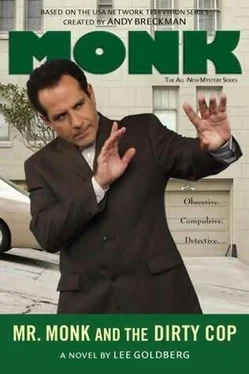


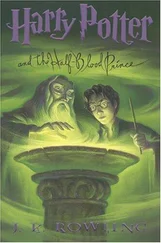
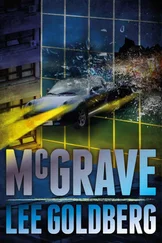
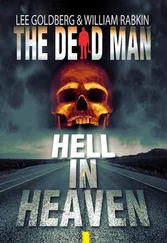

![О Генри - Фараон и хорал [The Cop and the Anthem]](/books/415669/o-genri-faraon-i-horal-the-cop-and-the-anthem-thumb.webp)




